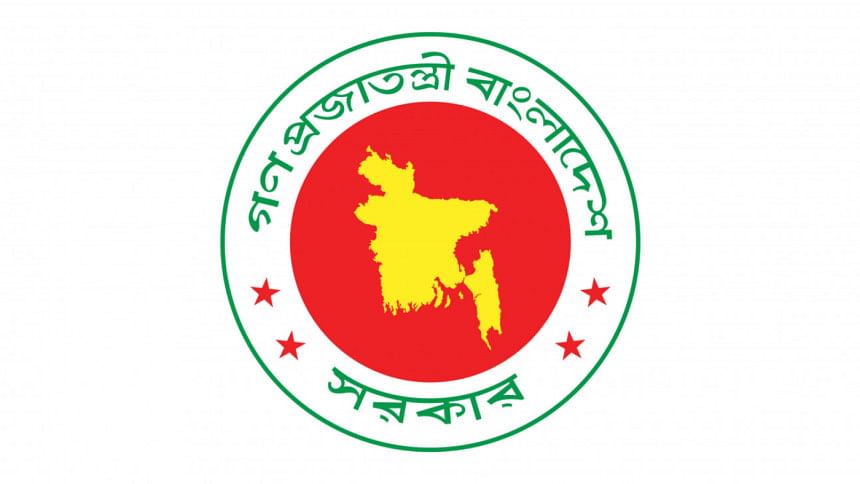Govt finalises 5 of 6 reform commissions

The government has formally constituted five commissions to reform the public administration, Anti-Corruption Commission, judiciary, police, and the electoral system.
The commissions were formed after Chief Adviser Prof Muhammad Yunus approved them.
The Cabinet Division last night issued separate gazette notifications to this effect.
It said the commissions will start work and will come up with reports in the next 90 days. The reports will be submitted to the chief adviser.
Four commissions -- the Public Administration Reform Commission, Anti-Corruption Commission Reform Commission, Judiciary Reform Commission, the Electoral System Reform Commission -- comprise eight members each while the Police Reform Commission has nine members.
Justice Shah Abu Nayeem Mominur Rahman, a retired judge of the Appellate Division of the Supreme Court, is the head of the Judiciary Reform Commission.
The seven members of the commission are Justice Emdadul Haque and Justice Farid Ahmed Shibli, two retired HC judges; Syed Aminul Islam, former district and sessions judge and former registrar general of Bangladesh Supreme Court; Masdar Hossain, former district and sessions judge; Hussain Shawn, senior SC lawyer, Quazi Mahfujul Hoque Supan, associate professor of law department at Dhaka University; and a representative from students yet to be decided.
The Electoral System Reform Commission is led by Badiul Alam Majumdar while its seven members are Prof Tofail Ahmed, local government expert; Jasmine Tully, former additional secretary and who have extensive experience in the Election Commission; Md Abdul Alim, election specialist; Zahed Ur Rahman, political analyst; Mir Nadia Nivin, international governance and institutional reform specialist; Md Sadek Ferdous; electronic voting specialist; and a representative from students yet to be decided.
Headed by Safar Raj Hossain, the Police Reform Commission will have eight members -- Abu Mumtaz Saad Uddin Ahmed, additional secretary of the home ministry's Public Security Division; Mohammad Iqbal, former director general of Department of Narcotics Control; Harun Chowdhury; former divisional commissioner and joint secretary; Sheikh Sajjad Ali; former additional inspector general of police, Golam Rosul, deputy inspector general of police, Shahnaz Huda, Professor of Dhaka University's law department; ASM Nasiruddin Elan; human rights activist, and a representative from students yet to be picked.
Iftekharuzzaman will lead the Anti-Corruption Reform Commission, which includes Masud Ahmed, former comptroller and auditor general; Mobasser Monem, professor of DU's public administration department; Muhammad Mahbubur Rahman, professor of DU's law department; Mushtaq Khan, professor of economics at SOAS University of London, and Barrister Mahdin Choudhury, Farzana Sharmin; Supreme Court advocate; and a student representative.
Biman Bangladesh Airlines Chairman Abdul Muyeed Chowdhury will head the Public Administration Reform Commission.
The other commission members are Mohammad Tareq and Md Ayub Miah, former secretaries; Mokhlesur Rahman, senior secretary to the public administration ministry; Hafizur Rahman, former additional secretary; Rizwan Khair, senior secretary to the public administration ministry; Prof Aka Firowz Ahmad, former chairperson of DU's public administration department, and a representative from students yet to be picked.
In his speech to the nation on 11 September, Chief Adviser Prof Yunus announced the formation of six commissions to reform the electoral system, police, judiciary, public administration, the constitution, and the anti-corruption efforts.
He also announced the names of chiefs of the six commissions.
Initially prominent lawyer Shahdeen Malik was announced as the head of the Constitutional Reform Commission, but later he was replaced by Professor Ali Riaz.
A highly placed source inside the interim government told The Daily Star that the commission would be announced within two or three days.
Following the submission of the reports by the commissions, the advisory council of the interim government will discuss the recommendations with political parties, after which there will be a consultative meeting that will represent all sections of society.
This is how the government plans to finalise the reform framework.
ADVISORY COUNCIL DECISIONS
Shafiqul Alam, the chief adviser's press secretary, said the weekly meeting of the advisory council approved in principle the proposed amendment of the Water Supply and Sewerage Authority Ordinance-2024.
The council, with Prof Yunus in the chair, also approved the draft of an extradition treaty with the Maldives.
Currently, Bangladesh has extradition treaties with India, Qatar, and the United Arab Emirates to exchange convicts from each other countries.
Once the ordinance is passed, the government will be able to remove and appoint managing director, officials or staffers of Wasa (Dhaka, Chattogram, Khulna, Rajshahi, and Sylhet) in public interest, said a press release of the Cabinet Division yesterday.
The government can also cancel any Wasa board in public interest, it said.
Earlier, the MD and DMD of Wasa were used to be appointed or removed following board approvals.

 For all latest news, follow The Daily Star's Google News channel.
For all latest news, follow The Daily Star's Google News channel. 





Comments